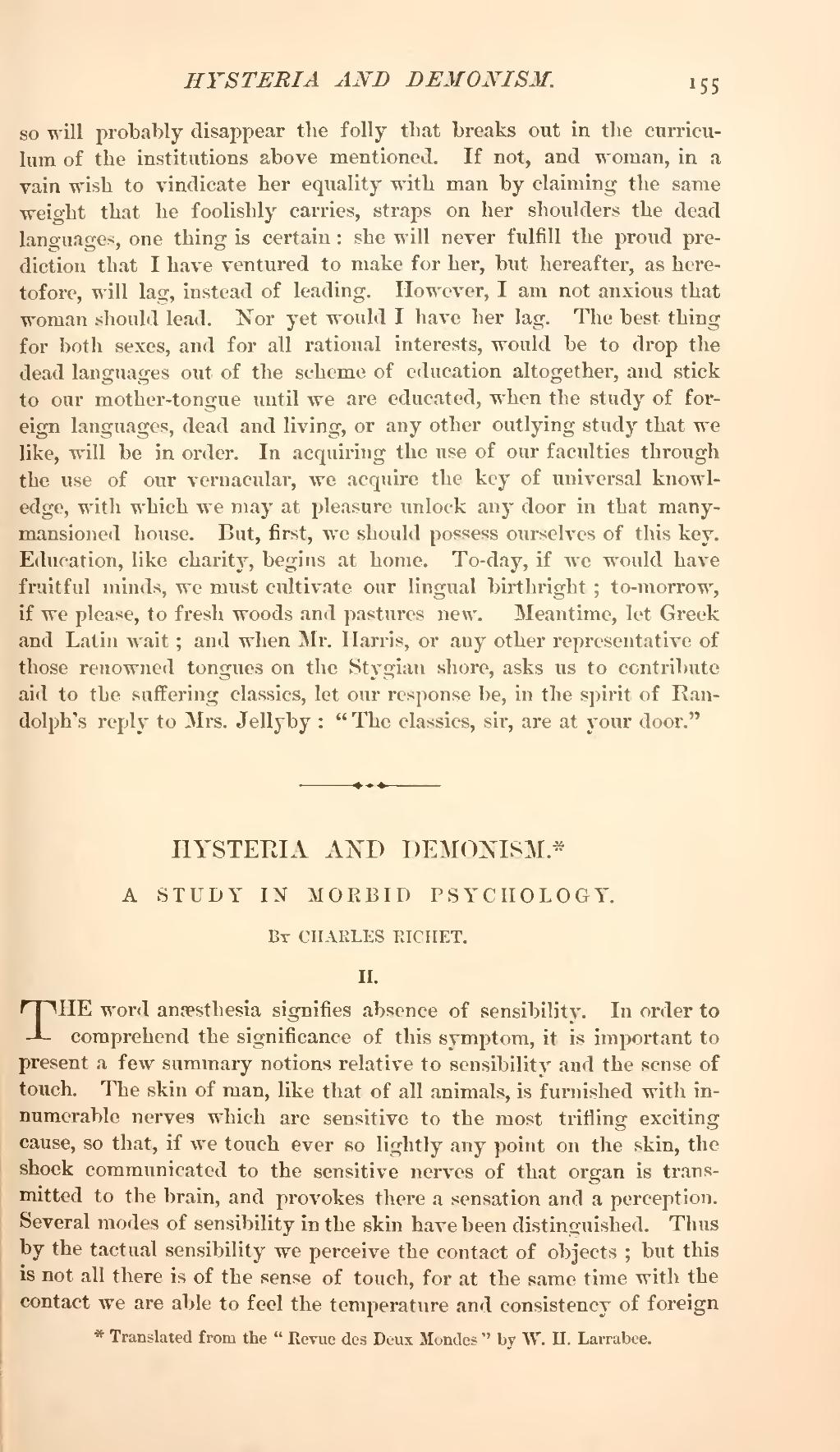so will probably disappear the folly that breaks out in the curriculum of the institutions above mentioned. If not, and woman, in a vain wish to vindicate her equality with man by claiming the same weight that he foolishly carries, straps on her shoulders the dead languages, one thing is certain: she will never fulfill the proud prediction that I have ventured to make for her, but hereafter, as heretofore, will lag, instead of leading. However, I am not anxious that woman should lead. Nor yet would I have her lag. The best thing for both sexes, and for all rational interests, would be to drop the dead languages out of the scheme of education altogether, and stick to our mother-tongue until we are educated, when the study of foreign languages, dead and living, or any other outlying study that we like, will be in order. In acquiring the use of our faculties through the use of our vernacular, we acquire the key of universal knowledge, with which we may at pleasure unlock any door in that many-mansioned house. But, first, we should possess ourselves of this key. Education, like charity, begins at home. To-day, if we would have fruitful minds, we must cultivate our lingual birthright; tomorrow, if we please, to fresh woods and pastures new. Meantime, let Greek and Latin wait; and when Mr. Harris, or any other representative of those renowned tongues on the Stygian shore, asks us to contribute aid to the suffering classics, let our response be, in the spirit of Randolph's reply to Mrs. Jellyby: "The classics, sir, are at your door."
| HYSTERIA AND DEMONISM.[1] |
A STUDY IN MORBID PSYCHOLOGY.
By CHARLES RICHET.
II.
THE word anæsthesia signifies absence of sensibility. In order to comprehend the significance of this symptom, it is important to present a few summary notions relative to sensibility and the sense of touch. The skin of man, like that of all animals, is furnished with innumerable nerves which are sensitive to the most trifling exciting cause, so that, if we touch ever so lightly any point on the skin, the shock communicated to the sensitive nerves of that organ is transmitted to the brain, and provokes there a sensation and a perception. Several modes of sensibility in the skin have been distinguished. Thus by the tactual sensibility we perceive the contact of objects; but this is not all there is of the sense of touch, for at the same time with the contact we are able to feel the temperature and consistency of foreign
- ↑ Translated from the "Revue des Deux Mondes" by W. H. Larrabee.

